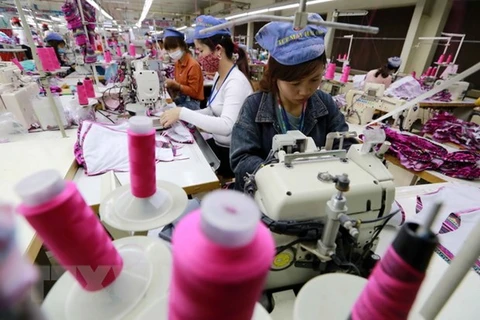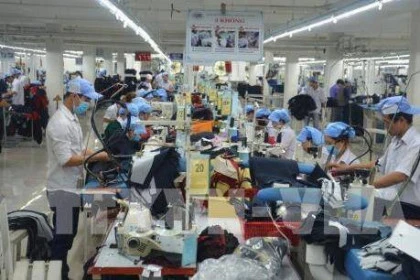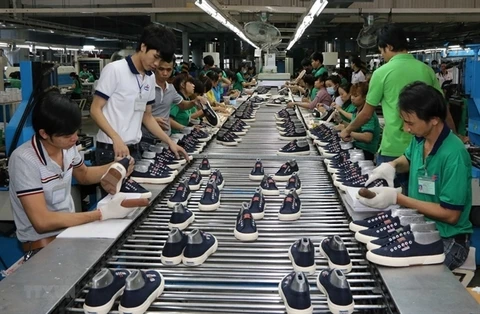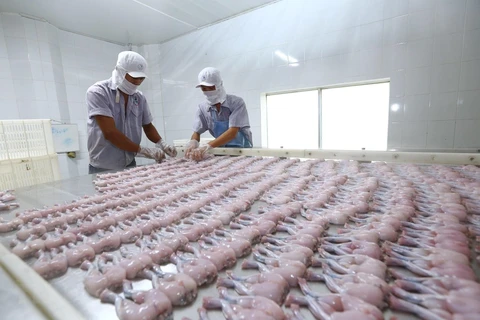 Representatives of the signatories show the joint statement at the signing ceremony on June 22 (Photo: VNA)
Representatives of the signatories show the joint statement at the signing ceremony on June 22 (Photo: VNA) Hanoi (VNA) – A joint statement on a cooperation initiative to address COVID-19 impacts on workers and businesses of the textile-garment and leather- footwear-handbag industries in Vietnam was signed in Hanoi on June 22.
The signatories consist of the Vietnam General Confederation of Labour (VGCL), the Vietnam Chamber of Commerce and Industry (VCCI), the Vietnam Textile and Apparel Association (VITAS), the Vietnam Leather, Footwear and Handbag Association (LEFASO), and the National Federation of Christian Trade Unions in the Netherlands (CNV).
Via this document, they call for the building of an agenda and a roadmap which involve social partners wishing to join hands to overcome crises and develop sustainable and prosperous industries. Particularly, they recommend investing in strategic partnerships and promoting social dialogue that suits the context in Vietnam and international labour standards.
VGCL Vice President Ngo Duy Hieu said amid the COVID-19 pandemic that is still raging around the world, the VGCL and relevant parties call on the governments of Vietnam and EU member countries, along with EU partners and brands, to provide timely support for workers and businesses affected by this outbreak by minimising administrative procedures and assisting the sectors to become creative industries applying sustainable and environmentally friendly production methods.
According to him, the COVID-19 pandemic has influenced employment in the textile-garment and leather- footwear-handbag industries. More than 1 million of the 4.3 million employees in these sectors have become jobless while the rest have worked at only 50-60 percent of capacity, and thus their income has also decreased by 40 percent. Meanwhile, more than 75 percent of workers in the two industries are women who form a more vulnerable group in society.
Although businesses and trade unions have strived to sustain jobs and income for employees, job losses and income reduction among 4.3 million workers have still affected nearly 3 million families, he noted.
Hieu added it’s now time to promote the development of the textile-garment and leather-footwear-handbag industries by capitalising on trade agreements, thereby boosting training for and job seeking capacity of workers. Enhancing the sense of responsibility of brands in supply chains will also help maintain jobs and livelihoods for workers.
In 2020, the export turnover of the textile-garment industry is forecast to drop by 8.5 billion USD while that of the leather-footwear-handbag sector may fall 5.5 billion USD. Due to COVID-19 impacts, shipments to the EU alone by both industries are projected to decrease by nearly 5 billion USD this year./.
VNA
























